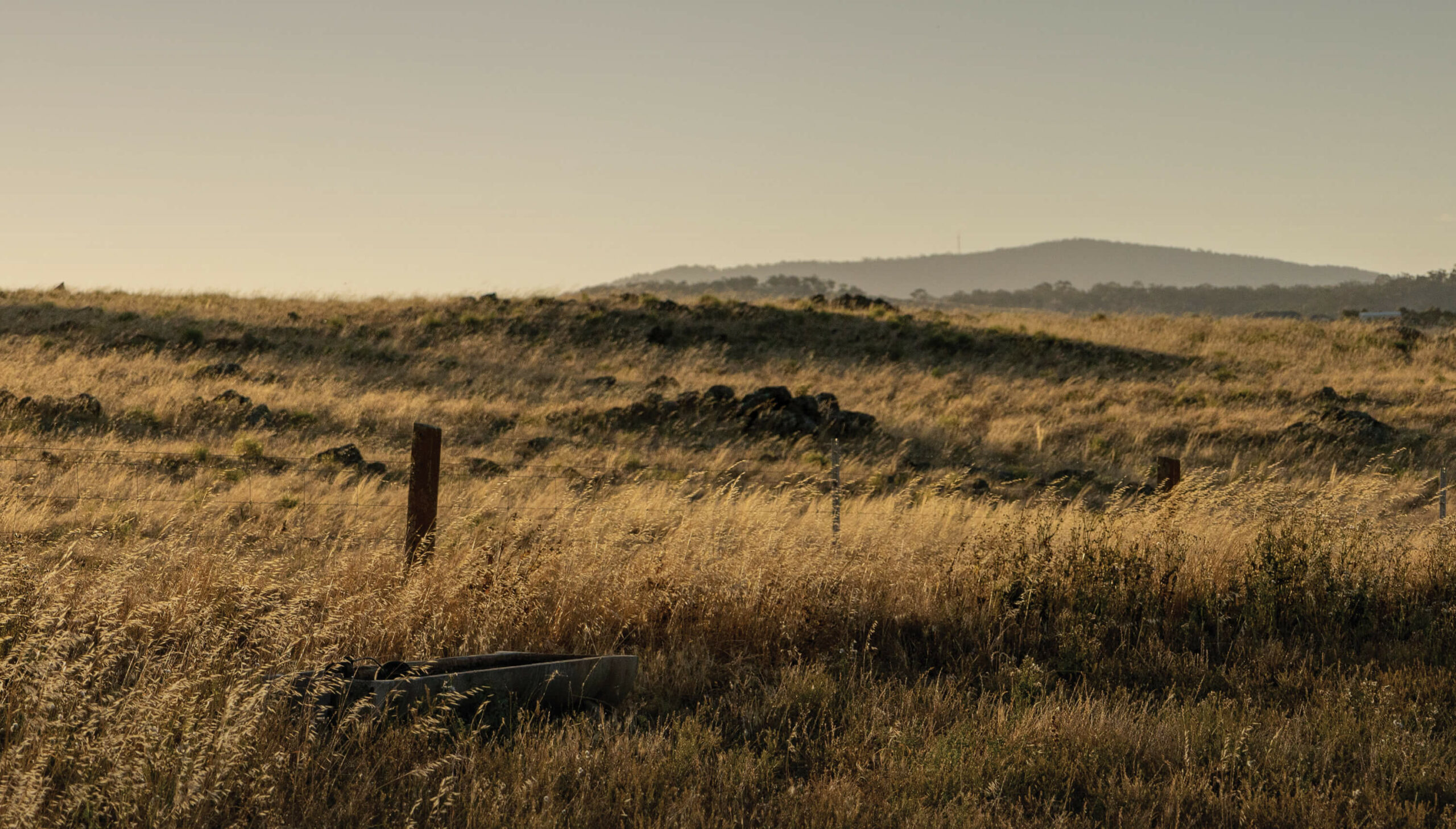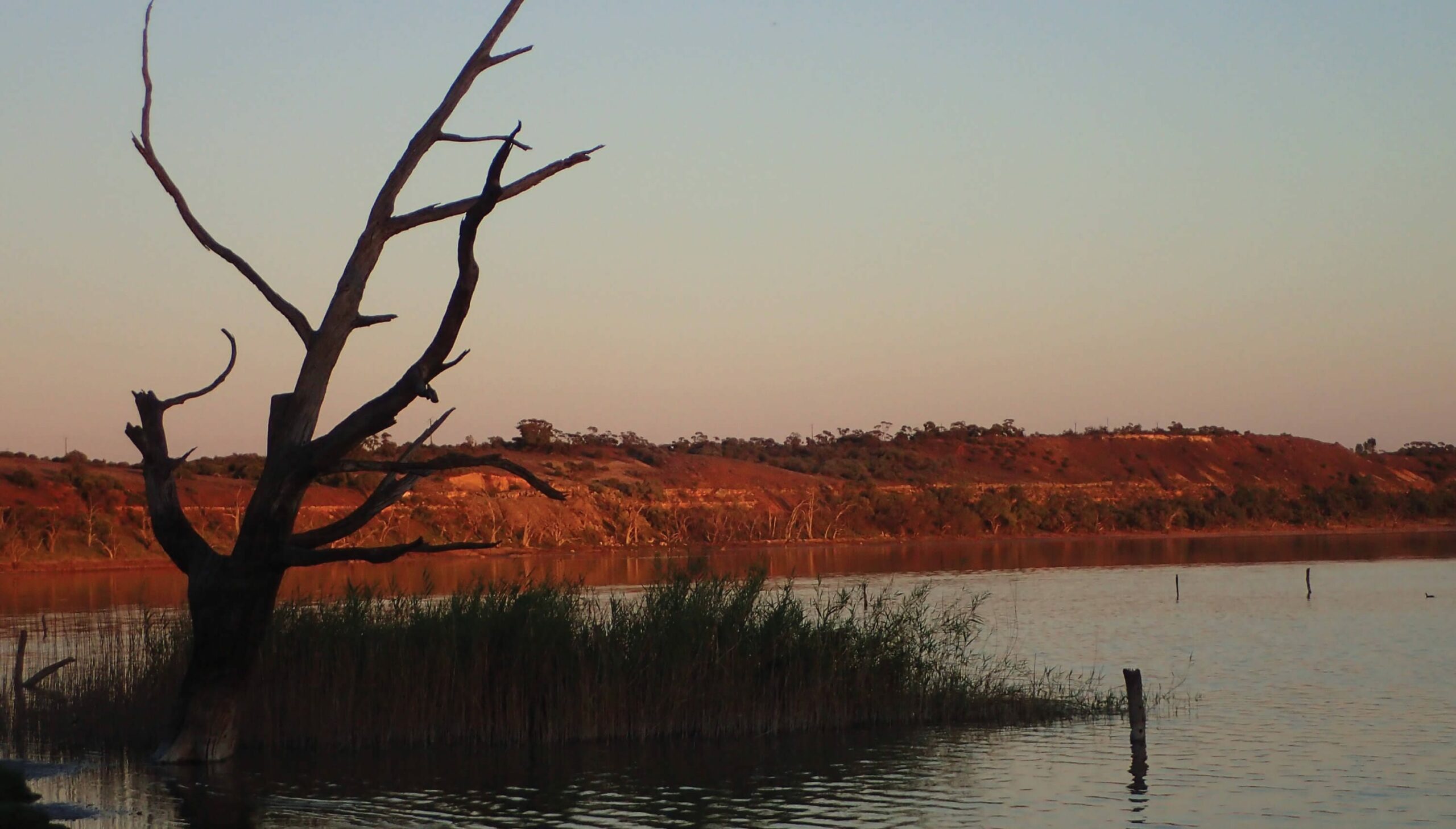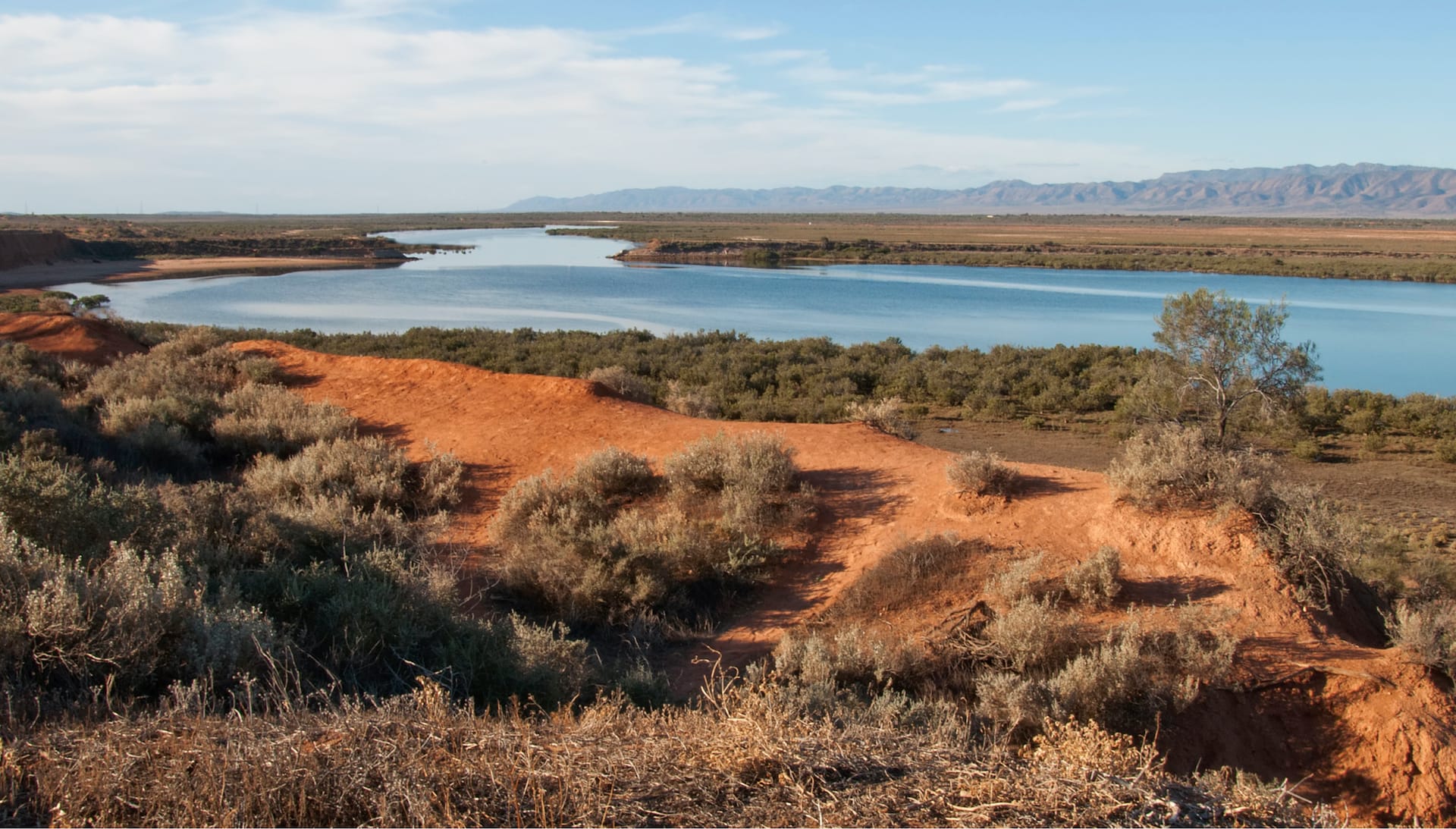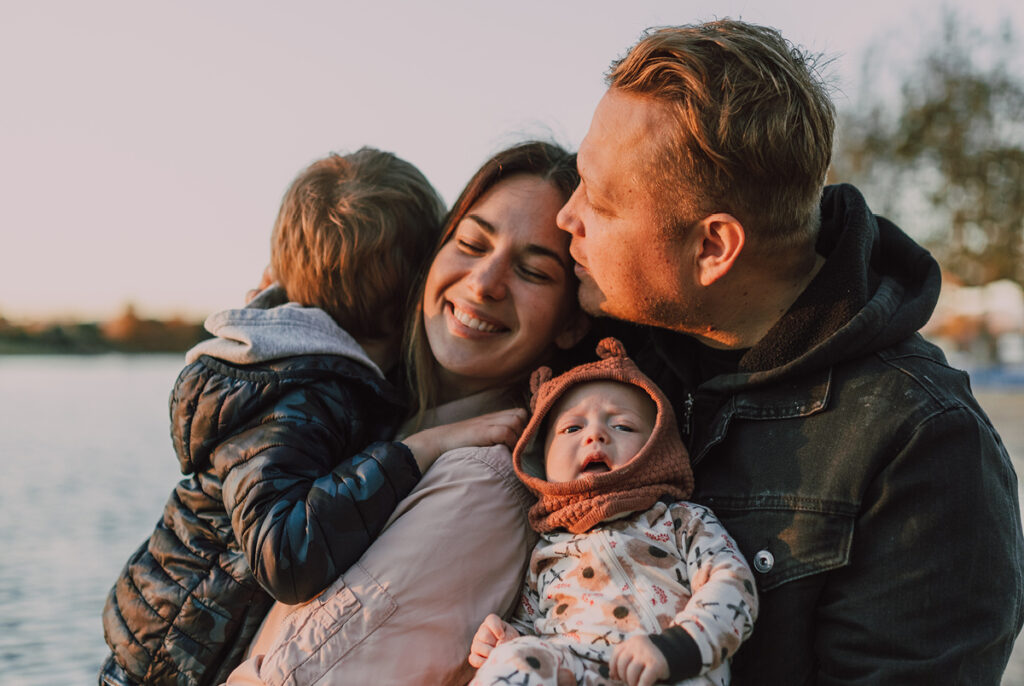Post Care Support Service
How do I contact Post Care Support Service to see if it’s right for me?
You can contact us Monday to Friday between 9am to 8pm on our free number 1800 188 118 if you would like to have a yarn about whether PCSS might be a good fit for you. You can also email us at p.care@rasa.org.au or complete the online enquiry form on this website.
Do I have to access Post Care Support Service?
Our program is voluntary, which means that it is your choice to engage with us, and we will work with you, not do things for or to you. This is because we believe that you are the expert in your own life, and our role is to support you in identifying your goals and finding the right support to achieve them.
If you don’t need or want support from PCSS right now, that’s ok – we have other options like our GOM Central website, lived experience facilitated workshops and pop-up clinics.
Is Post Care Support Service part of DCP?
Although PCSS is funded by the Department for Child Protection, it is separate to DCP. Staff work at Relationships Australia SA, Anglicare SA and KWY (Kornar Winmil Yunti). Our services are confidential and free.
Where can I access Post Care Support Service?
PCSS covers all of South Australia. We have staff in Salisbury, Adelaide and Marion who work across all metropolitan areas. We also have staff based in Berri, Mount Gambier, Port Augusta and Port Lincoln. If you live too far away from the physical location of a staff member, we will work with you around phone or online based support.
Am I eligible for support through Post Care Support Service?
You may be able to receive support through PCSS if you have experienced out of home care for six months or more in South Australia, or are now living in SA after experiencing out of home care for six months or more interstate. This might include Department for Child Protection residential care, foster care or kinship care.
Although our priority group is people aged 17-25 years, the program sometimes provides support to people outside of this age group, depending on their circumstances.
Is Post Care Support Service a crisis program?
It is not a crisis program, however, support facilitators can provide suggestions around services that can provide crisis support if you need this.
What does Post Care Support Service do?
PCSS provides case management, support coordination and advocacy support. This support is mostly around transitioning to independence across eight domains of life including housing, education, employment, health, and finances. Depending on what is happening for you, this could include:
- connecting you to the right services through referrals
- providing support letters
- helping you pick up or fine tune independent living skills like managing your tenancy, scheduling your time, budgeting or getting around on public transport
- working with you to come up with a shared support plan with the services you need as well as the other important people in your life
Collaborative Practice
If I’m interested in a collaborative legal process, who do I contact?
Where can I get referrals for Private family lawyers?
Contact the Law Society of South Australia
www.lawsocietysa.asn.au
Where can I find contact numbers for community legal services/legal advice?
Please refer to the information pack that has been emailed to you prior to your intake or call our offices and we can send it out to you.
Forced Adoption Support Service
How do I know if my adoption was forced?
The forced adoption era is officially described in the 2012 Senate Report. It peaked between 1951 and 1975, however we know that forced adoption took place outside of this timeframe.
rebuild: Counselling for Victims of Crime
Information about the Commissioner for Victim’s of Rights
In South Australia, there are guidelines to protect and promote your rights if you are a victim of crime. These guidelines apply to all public agencies and officials. They outline how you should be treated and supported if you are a victim of crime. These principles are contained in the Victims of Crime Act 2001.
The Commissioner for Victims’ Rights is an independent statutory officer appointed by the Governor to help victims of crime and to ensure they are treated according to the guidelines.
The Commissioner can:
- provide information, advice and support to victims of crime
- help to deal with the physical, emotional and financial impact of crime
- help victims in their dealings with prosecution authorities and government agencies.
The Commissioner also monitors and reviews laws and court practices on victims.
The Commissioner cannot:
- change a decision made by a judge, magistrate or tribunal member
- investigate a complaint that is already being investigated by another organisation
- investigate a complaint not covered by the Victims of Crime Act 2001.
For victim-related enquiries, please contact the Commissioner for Victims’ Rights.
Call:(08) 7322 7007
Email: victimsofcrime@sa.gov.au
Web: https://www.voc.sa.gov.au/
Find and Connect
Who Can Access Find & Connect Support Services?
As more than 500,000 children grew up in orphanages, foster care, children’s homes or other institutions in Australia over the last century,
the Australian Government has set up a national network of
Find & Connect Support Services to help improve the lives of Forgotten Australians and Former Child Migrants.
Find & Connect offers support to Forgotten Australians and Former Child Migrants who were in care in Australia between 1920 and 1989, including those who were in foster care, orphanage care, and in care at other State or church-based institutions.
Family Dispute Resolution
What are the benefits of using this service?
Research among separated and divorced Australians show that more people were satisfied with the Family Dispute Resolution experience than with the legal, Family Court or a ‘do it yourself’ way of finalising a separation or divorce.
FDR takes place in an environment that helps reduce conflict. The benefits of FDR will differ for each person, but some of the main advantages are:
- Individual assessment can help to personalise options that will work for you
- Solutions are created by both partners
- It is a cost-effective process
- Resolution can be faster than through the legal system
What happens during Family Dispute Resolution?
Family Dispute Resolution is mediation rather than counselling. We listen but we do not take sides. One of our skilled mediators will assist you to discuss problems and develop solutions that make sense in your situation. We can work with individuals, couples and children. We are sensitive to culturally and linguistically diverse and Aboriginal and Torres Strait Islander clients.
FDR is personalised to meet your circumstances. Mediation is a flexible way of dealing with issues arising from relationship breakdowns including contact with children, finances, and property matters. It can reduce the need for stressful, expensive court hearings and keep legal costs to a minimum. Mediation can also help with developing and reviewing parenting agreements.
What are the steps in accessing the Children’s Contact Service?
Parents or carers must have a Court Order, Parenting Plan or Heads of Agreement to access the Children’s Contact Service.
Parents or carers must register for the service by contacting the service they have been referred to.
Once both parties have registered, an individual intake appointment is booked.
Following the intakes with parents or carers, an individual Kids intake appointment is booked for all children 6 years old and above.
Once intakes are completed, an orientation at the site of the visits or changeovers is booked before the visits or changeovers commence.
What are Supervised Contact Visits?
Supervised Contact Visits are blocks of time children spend with a parent or family member at the service. These visits happen with the supervision of a worker. These can be arranged in line with a parenting plan or court order.
What is Changeover service?
The Changeover service is when children and young people are calmly moved between their separated parents or other family members by our workers.
What happens at the Children’s Contact Service?
We offer a ‘Changeover’ and a ‘Supervised Contact Visit’ service at all sites and a playgroup at our Hindmarsh and Elizabeth sites. Playgroups are also supervised by our staff and provide a different kind of opportunity for parents/caregivers and children to continue a relationship. Please enquire regarding times and availability with our service coordinators.
Do I have to see or speak with my ex-partner?
No. We provide separate entrances so that parties do not meet or see each other.
Ngartuitya Family Group Conferencing
How does Family Group Conferencing work?
- For families to participate in an Ngartuitya Family Group Conference they must be fully informed by a Department for Child Protection (DCP) social worker about the safety concerns for the child and agree that to minimise or remove those risks for the child to thrive, that a whole of family approach could work.
- A DCP social worker will explain the purpose Family Group Conferencing to the family, including who is able to attend the conference. Participation in a Family Group Conference is voluntary.
- Once the family agrees to participate, they are referred to Ngartuitya Family Group Conference Service at Relationships Australia South Australia who will connect with the family to discuss the referral and prepare for the conference. This includes the allocation of a Ngartuitya Coordinator to support members of the family come together for the benefit of the child.
- The preparation stage is a critical stage as the Ngartuitya Coordinator works closely with the family to ensure all the people who can positively contribute the care of the child are invited to participate in the conference.
- The Ngartuitya Coordinator, in partnership with the child or young person and their parent, is responsible for deciding who can attend a Family Group Conference. This decision is based on whether the participation of a person is likely to make a useful contribution to reaching an agreement that supports the wellbeing of the child during the Family Group Conference.
- The Ngartuitya Coordinator is in attendance as they facilitate the smooth running of the family conference. The DCP social worker will be in attendance too.
- The Family Agreement will need to address the concerns raised by the Department of Child Protection. The Family Agreement must be agreed to by the parents/guardians, child or young person (if in attendance) and the DCP social worker at the time of the conference.
- It is the Ngartuitya Coordinator’s role to provide a written record of all decisions made at the Family Group Conference. This can include decisions about care arrangements, cultural support and connections, contact arrangements as well as any actions required by parents/guardians, other agencies and family members.
Ngartuitya Family Group Conferencing team are eager to hear your feedback and each participant will be contacted about their experience to help us understand what is working well and what to do better.
Who can refer to Ngartyuitya Family Group Conferencing?
All referrals to Ngartuitya Family Group Conferencing Service are made through Department for Child Protection.
If you would like any further information about this service, please
click here to send us an email.
What does a Family Group Conference involve?
The first part is sitting together as a family to make sure everyone understands what they are there to do, and what child safety concerns are to be addressed. Your Ngartuitya Coordinator and DCP social worker will also be there for this part.
The second part is family time. You’ll have private time and space to make decisions about what you can do within the family and community to address the child safety concerns. The Ngartuitya Coordinator can help run the session, if requested. The DCP social worker is not part of family time.
The third part of the process is the Family Agreement. You’ll create a plan for what has to be done, who is doing it, and by when. Everyone involved in the process (including the family and DCP social worker) must agree to the decisions that have been made. You’ll also need to be clear on your own role and responsibilities. The Ngartuitya Coordinator will make sure that everyone receives a copy of the family agreement.
Walking Together: Intensive Family Services
Who can refer to Walking Together: Intensive Family Services?
The Department of Human Services makes all referrals to Walking Together.
Safe Start
Who is Safe Start for?
Safe Start provides culturally appropriate support for all families with a particular focus on Aboriginal families whose children are overrepresented in the child protection system. We are committed to working restoratively with Aboriginal families and their children and providing support in culturally responsive ways.
Safe Start was co-designed using Aboriginal principles where:
- Aboriginal and Torres Strait Islander children are front and centre.
- Cultural strengths are reflected.
- Aboriginal and Torres Strait Islander’s right to self-determination is reflected.
- The truth of our shared histories, the hurts, the strengths, and the healing are acknowledged and reflected.
What is the referral process?
Families with an infant and women who are pregnant and living in the western and inner north suburbs of Adelaide are referred to Safe Start by approved referrers of the Child and Family Support System, including the Department of Child Protection and the Women’s and Childrens hospital.
We will continue to accept community referrals for Aboriginal and Torres Strait Islander families from families in the community who are concerned about another family member.
Eldercaring Coordination
Should parties have a lawyer during the Eldercaring Coordination process?
While participants in eldercaring coordination may have a lawyer, lawyers are not required. Eldercaring Coordination is intended to be a confidential process, meaning that what is discussed during sessions is not to be offered as evidence in any court or tribunal. Lawyers may be invited by the EC to attend sessions, with the understanding that their approach will be collaborative.
What happens after intake?
After the intake, the EC helps family members reduce conflict and focus on the needs, wishes, care, and safety of the ageing person. The EC helps the family develop and implement a care plan that is flexible enough to change with the needs of the ageing person and family members. Solutions focus on family strengths to provide for the ageing person’s needs. Once family members begin to collaborate, they are better able to work with other resources to care for their ageing loved one. Through the process of Eldercaring Coordination, families can save time and money, preserve their privacy, elevate the ageing person’s dignity, and pass on a legacy of peace to future generations.
Why shouldn’t these families just go to mediation?
While many families can resolve their issues through mediation, high conflict families are unable to concentrate on the issues at hand. These are the cases appropriate for Eldercaring Coordination, where specially trained Eldercaring Coordinators (ECs) help families manage conflict, reduce tension, and overcome entrenched hostilities. Families may use mediation after participating in eldercaring coordination when they are better able to focus on the issues impacting their ageing loved one.
How often do participants meet with the Eldercaring Coordinator?
Sessions are scheduled according to the unique needs of each family to help resolve non-legal issues. Session frequency decreases when family members can productively communicate to develop and implement an ageing person’s care plan.
The EC remains available so that the family can address non-legal issues as needed.
Who can refer to this service?
Anyone can refer a case for Eldercaring Coordination when there are:
- concerns about an ageing person’s care and safety
- imbalances of power
- frequent disputes about unsubstantiated issues
- possessive or controlling behaviours toward the ageing person.
Chronic Illness
What is a chronic illness and what is chronic pain?
Chronic Illness
Chronic illnesses are long-term conditions characterized by complex causes; multiple risks; long periods of latency (the time between exposure to the illness and feeling its affects); and impairment or disability. Common chronic physical illnesses include coronary heart disease, stroke, lung cancer, colorectal cancer, diabetes, arthritis, osteoporosis, asthma, chronic obstructive pulmonary disease, chronic kidney disease, hepatitis C, and oral diseases (State Government Victoria, 2012). Long-term mental health illnesses are also considered chronic illnesses, and include depression, schizophrenia and bipolar disorder (Gray, 2015).
Chronic Pain
Pain is defined as an unpleasant sensory and emotional experience associated with actual or potential tissue damage or experienced in terms of such damage (Merskey & Bogduk, 1994). Chronic pain refers to pain that has persisted for a period longer than three months (Merskey & Bogduk, 1994). This form of pain is now considered to be a disease in its own right (Tracey & Bushnell, 2009), rather than just being a symptom of some other condition, as it is often experienced for many months or years despite attempts to treat it with medications and other therapies (Gray, 2015).
Intercountry Adoptee and Family Support Service
I have been contacted by someone on Ancestry DNA who says they are adopted and we are related, what should I do?
We can provide you with support if you have been contacted via DNA testing. Please call us to make an appointment.
Can you support me to discharge my adoption?
Yes we can provide you with emotional support to go through this process, however you will also need some legal representative or you can represent yourself in court, as all discharges need to go through the South Australian Children’s Court.
Do you have support groups?
Yes we do. Please contact us for more information.
My Mum/Dad is adopted and are happy for me to search for biological relatives on their behalf can I do that?
You will need written consent from your parent in order for you to access the adoption file for searching. If your parent has passed away, you are able to access the information as a descendant of an adoptee.
I would like to adopt a child, can you help me?
Do you have any information to help my child’s school support them?
We have an information booklet available here. We can also visit the school to discuss how best to support an adopted young person in the school.
How much is available in the bursaries funding?
Up to $500 per application is available.
How much is available in the small grants funding?
The total amount per financial year is $50,000, which includes the bursaries component, with each grant being a maximum of up to $5000. There are two grant rounds per year.
What do I need to search for my birth parents or for the child I lost to adoption?
The first thing you will need to do is to get the adoption file. Once you have the file, we can assist you with your search.
Together4Kids
Where can I get help for my child who has experienced family violence, divorce or separation and is struggling?
Contact us and ask to talk to a Family Advisor to discuss the most appropriate service for you and your child.
Can I self-refer to this service?
No, children must be clients of a homelessness or family violence service and referred by a family case manager.
Supporting Emotional Wellness in Aged Care
What about diversity?
The SEW team promotes and supports diversity and belonging. We are committed to treating everyone equally, regardless of their age, ability, gender, sexuality, relationship status, race, religion, and culture. Being responsive to diversity is a key for improving the quality and effectiveness of care, creating a culturally safe group and improving wellbeing of residents living in RACF. We will organise an interpreter when required to attend the group if needed.
How long do therapeutic groups run for?
All therapeutic groups are offered for up to 6 sessions, held fortnightly (with the exception of Music Therapy groups which are offered for up to 8 sessions, held weekly). Each session is scheduled for 45 minutes, with additional time allocated to set up and pack up. Practitioners will arrive 15-20 minutes prior to each session to set up.
A Practitioner will meet with each participant individually prior to the group for a pre-appointment to introduce the SEW program, discuss informed consent and to explore what they would like to achieve from the group.
Who can access SEW program therapeutic groups?
Therapeutic groups are available for residents ‘at risk’ of developing or who are living with mental health conditions such as depression, anxiety, experiences of grief and loss, or mild to moderate mental health condition and who will benefit from short-term psychological therapies.
SEW services are not able to support residents with significant behavioural issues, dementia with severe cognitive features, delirium, or acute and persistent complex mental illness that would be more appropriately managed by a General Practitioner (GP) and/or specialised health service such as Dementia Behaviour Support and Older Persons Mental Health.
If you are unsure as to whether a resident would be eligible for referral, please contact the SEW duty team on 1800 000 739.
How are SEW groups therapeutic?
SEW groups are trauma informed, evidence-based and delivered by qualified practitioners. They are designed to offer residents opportunities for self-expression and connection, as well as improve general wellbeing, strengthen belonging and purpose while building strategies and practical skills to better manage stress and build resilience.
What issues can’t SEW support?
The program is not intended to support residents with significant behavioural issues, dementia with severe cognitive features and behavioural symptoms which is affecting their wellbeing and care, or delirium.
These needs are better supported by specialised services, such as the South Australian Government’s Older Persons Mental Health Service and the Dementia Behaviour Management Advisory Service, delivered through Hammond Care Australia.
How does this program work with other activities provided to residents of aged care facilities?
The program will not duplicate the role of leisure and recreation activities already provided to facility residents.
How can I access the program?
We welcome self-referrals, as well as referrals from family and friends. Call 1800 000 739 between 9am and 5pm, Monday to Friday.
GOM Central
Is the Department for Child Protection involved?
GOM Central is part of Relationships Australia and is not run by the Department for Child Protection.
Does GOM Central do fun stuff?
Yes, we have plenty of social activities you can join!
Who participates in GOM Central groups?
Other young people with lived experience of the care system, as well as some post care workers.
How do I become involved in GOM Central?
Visit our website, send us an email or reach out to 0415 078 733.
What is GOM Central about?
We’re an online support resource for young care leavers. Watch this short video to find out more.
Do I have to share my story?
Our focus groups are safe places for young people. We’d love you to share and participate when you feel comfortable. However, you can do this at your own pace. We’ll never pressure you to share your story in order to participate.
Reset2Respect
How can I access the program?
Referrals for this program must come through the Courts Administration Authority.
About Culture
Will I lose my family and community?
In some cases, this may be the outcome, but in some cases no, just make sure you remember that whatever the case, it is something that can always be worked on! There are many cases where things turn out better than anyone ever hoped. UNIDOS will always provide support to help you through these hard times and there will be people for you to talk to you.
Do I have to turn my back on culture to be same sex attracted?
You do not have to make a choice between your cultural values and beliefs or being same sex attracted, it is quite possible that you can embrace both equally in your life. Being same sex attracted is only one part of your identity and you do not have to take it on as being all of who you are. Sometimes it is hard to find a balance, especially when there are parts of your culture that do not agree or conflict with being same sex attracted; but with time and support, it is something that can be achievable.
Why is it sometimes easier for my white western Australian friends to be same sex attracted?
It is sometimes easier for them because in Australian culture, same sex attraction is more openly spoken about, there are many laws that protect their rights and safety and there is a lot more exposure, education and awareness than in many other cultures. It is quite common for there to be conflict of values and beliefs across different cultures, which can make being same sex attracted harder in one culture than it is in another.
Is it harder for same sex attracted people who come from different cultural backgrounds?
It can be, because often our families and communities were brought up differently, and in many countries being same sex attracted is thought to be wrong. There is also the case of sexuality not being something that’s openly discussed in our parent’s earlier years, so they don’t actually know a lot about it!
About Sexuality
What support is out there for me?
At first it can feel like you are all alone, but this does not have to remain that way because there are definitely more people who share the same feelings out there. There are many same sex friendly services out there, which will not judge or disclose any information you do not want shared. It can be scary to reach out to these places and you may not feel like they’d understand your individual needs (based on our cultural differences) so that’s why UNIDOS has to come together as a support group for same sex attracted people from different cultural backgrounds.
Will everyone react in the same way?
No, they will not – each situation is different, everyone has their own unique experience. There are some similarities in the way loved ones react based on culture, beliefs, religions, experiences and expectations. This is why we all need to find a way to accept that this is how we are and to learn to be happy with it, even though some people close to us may not feel that way initially. As we learn to accept ourselves, we can then teach our communities to do the same.
Do you have to come out?
Absolutely not, you do not have to come out and you should never be forced to do so either. It’s something you do when and only when you are completely ready. It may be something that you choose to never do and that’s ok too! There are often lots of pressures for same sex attracted people to come out, but you should never feel forced to do it if it makes you uncomfortable or will cause you too much hardship.
However, if you do decide to come out, a few things to remember about this whole process is that you have the right to live the life you want to live, and share your life publicly with the person you love. Sometimes this is difficult and it could risk you losing the people you love and be judged by your community, but it can sometimes turn out better than you think. Someone out there does understand your situation, and closing some doors may open a whole bunch of new ones.
What is coming out?
Coming out is when you decide to reveal that you are same sex attracted, and this is done once you decide you’re ready. Coming out definitely has its advantages, it is a time when you are ready to live the life you want to live, and when you’re ready to publicly share your relationship and who you are. But it can also cause hurt and hardship for the individual coming out, especially when you belong to a strong cultural group or strict family who are non-accepting.
Are same sex attracted people mentally ill?
No! Despite what your family and communities might think – there is nothing wrong with being same sex attracted and you are not sick or mentally ill! What is sick is hurting people, abusing them, stuff like that. Having real feelings for someone is not. That is called attraction, lust or even love, which is not wrong, or sick, its part of life and is completely natural.
What is bisexuality?
Bisexuality is when you are sexually attracted to both males and females. It is completely possible for some people to love and be attracted to a person for who they are, rather than just their gender. We have to keep an open mind, and respect everyone, even if they do not choose to live their life the way we think they should. Everyone has their own individual experiences and feelings and we should all learn to accept them in the same way we want to be accepted.
Can I become heterosexual (straight) if I really want it to?
You can certainly pretend not to have these feelings; you can also choose to hide it from your friends and family. You do not have to feel any pressure to admit to share anything with yourself or others if you are not ready. Just remember that we are not always fixed people, life is fluid, we can all change and grow to feel attracted to many different people, and sometimes they may be from the same sex or a different one.
Is this a choice?
It is said that being same sex attracted is something we choose and something we realise about ourselves in our adolescent years. In some cases it may be something you are born with and have always known, or perhaps don’t realise until much later in life. Whatever the case, we can’t generalise. In some ways there is a choice, the choice lies in whether you want to act on your attractions or not. There is often not a choice to switch off the feelings and attractions you may be feeling for the same sex.
What causes a person to have same sex attracted feelings?
There are many theories on what causes us to have these feelings, for example: people can sometimes think that it’s only because someone else in your family is same-sex attracted, or that it’s the influence of your friends. Others may say that it’s because you’ve had bad experiences with the opposite sex, or because of social and media influences, but when it comes down to it, all you have to remember is that your feelings are yours, and you feel them because they are natural to you. There is nothing wrong with it, and you can absolutely live a normal life, feel the deepest love and be a productive member of society.
How do I know if I am same sex attracted?
Sometimes it’s not easy to tell if you are same sex attracted, especially when you come from a cultural background where it is never spoken about openly or recognised. Being same sex attracted though, generally means that you have feelings and a sexual attraction that extends beyond friendship, for someone who is the same sex as you. If you feel this way then it could be an indication that you are same sex attracted.
What does it mean to be same sex attracted?
It means just that! It means that you have intimate feelings and a sexual attraction for someone who is the same sex as you.
Child Sexual Abuse Counselling Service
Where can I go if I have any legal questions or concerns?
If you have legal questions or concerns about telling your story to the Royal Commission, you should contact knowmore, a free legal advisory service for people who would like legal advice either before, or at any point after, contacting the Royal Commission.
knowmore is a confidential, free legal advice service to help people navigate the Royal Commission. knowmore has been established by the National Association of Community Legal Centres Inc with funding from the Australian Government. It is completely separate from the Royal Commission. It offers a free national advice line and where possible will see people in person as needed. It can help with:
- Legal information and advice about the Royal Commission’s powers, procedures and guidelines and the range of options available for engaging with the Royal Commission
- Advice on related legal issues such as the effect of confidentiality agreements in past proceedings and the availability of compensation
- Help with writing statements and submissions
knowmore does not provide legal representation for people appearing before the Royal Commission but, if needed, can help you with finding suitable representation and to access funding for it.
knowmore’s staff includes lawyers, counsellors, social workers and Aboriginal liaison officers.
knowmore’s national free advice line is
1800 605 762.
Further information about the services knowmore provides can be found at:
www.knowmore.org.au
I am affected by childhood sexual abuse that occurred in the home. Can I still access these services?
Royal Commission Support Services is only for people affected by childhood sexual abuse that occurred in institutions. However, if the abuse did not occur in an institution, we can refer you to other counselling and support services.
I am affected by institutional child sexual abuse but I don’t want to officially engage with the Royal Commission. Can I still access counselling and support?
Yes. Royal Commission Support Services can provide counselling and support to anyone affected by the Royal Commission, including individuals, family members and friends, as well as employees of institutions where abuse occurred. You do not need to engage with the Royal Commission in order to access these services.
What support is available to people affected by the Royal Commission?
The Government understands the painful and traumatic nature of remembering stories of childhood sexual abuse and as a result has funded free support services in all states.
Royal Commission Support Services is a free service provided by Relationships Australia (SA). This service is for people affected by the Royal Commission, family members and friends, as well as employees at institutions where abuse occurred.
We can help you to:
- Understand the Royal Commission process
- Tell your story to the Royal Commission
- Access counselling and legal support
We can support anyone affected by the Royal Commission, even if you do not want to officially share your story.
Will the Royal Commission grant compensation to survivors?
The Royal Commission does not have the power to make grants of compensation to individuals affected by institutional child sexual abuse. The Royal Commission can make recommendations about alleviating the impact of past child sexual abuse, but they cannot grant compensation.
Does the Royal Commission have the power to prosecute offenders?
Not directly. The Royal Commission can provide your information to law enforcement bodies however the information you provide will be kept confidential unless you agree to it being made public.
The Royal Commission can communicate information provided to it to law enforcement bodies. This could include information you provide in private sessions. The Royal Commission will ask you to agree to information you have provided being given to law enforcement bodies.
The Royal Commission will only disclose information you provide to a law enforcement agency, without first discussing the matter with you, if the Chair of the Royal Commission believes that is necessary to prevent harm to any person.
What happens if I contact the Royal Commission but the Royal Commission determines that my information is outside the Terms of Reference?
If you contact the Royal Commission but the Royal Commission determines that your situation is outside the Terms of Reference, they will discuss this with you and, where necessary, discuss what other options are available to you. Where appropriate, they will offer you the contact details of law enforcement agencies, support services and other agencies and provide assistance in contacting these agencies.
What is meant by an ‘institution’?
The word ‘institution’ in this context refers to any public or private body, association, club or organisation that has provided activities, facilities, programs or services for children, excluding courts. This includes government and non-government facilities, including state homes, orphanages, churches and sporting clubs.
What is the Royal Commission into Institutional Responses to Child Sexual Abuse?
The Royal Commission into Institutional Responses to Child Sexual Abuse is a six-member panel that is investigating how institutions have responded to allegations and instances of child sexual abuse.
The panel was appointed on 11 January 2013 by the Governor-General of the Commonwealth of Australia: Her Excellency Quentin Bryce.
It is the job of the Royal Commission to uncover where systems have failed to protect children so it can make recommendations on how to improve laws, policies and practices.
How can I refer to CSACS?
Self-referrals can be made by calling 1800 408 408 or using the online referral form. Services referring to CSACS are asked to utilise the online referral form.
What are the eligibility requirements?
The counselling provided is directly related to the sexual trauma. The service is eligible for people who’ve experienced historical sexual abuse, have an active or no present investigation, and in a familial or institutional context.
How many counselling sessions are available?
The service is short to mid-term in nature however frequency and duration of services is variable depending on individual circumstances.
Counselling
Can you provide me with assessments and reports?
No. Any feedback to parents will be provided with the consent of the child/young person, either in-person or via a phone call.
Can we access iKiDs if we are currently in the Family Court system?
If you are currently addressing matters through Family Court, we may need to postpone services until Family Court matters are concluded.
Can you provide me with assessments and reports?
No. Any feedback to parents will be provided with the consent of the child/young person, either in-person or via a phone call.
Can we access iKiDs if we are currently in the Family Court system?
If you are currently addressing matters through Family Court, we may need to postpone services until Family Court matters are concluded.
How many sessions can my child access?
Each child can access up to six sessions. Additional appointments may be offered if appropriate. We can also refer children to other support services once they have concluded with iKiDs.







